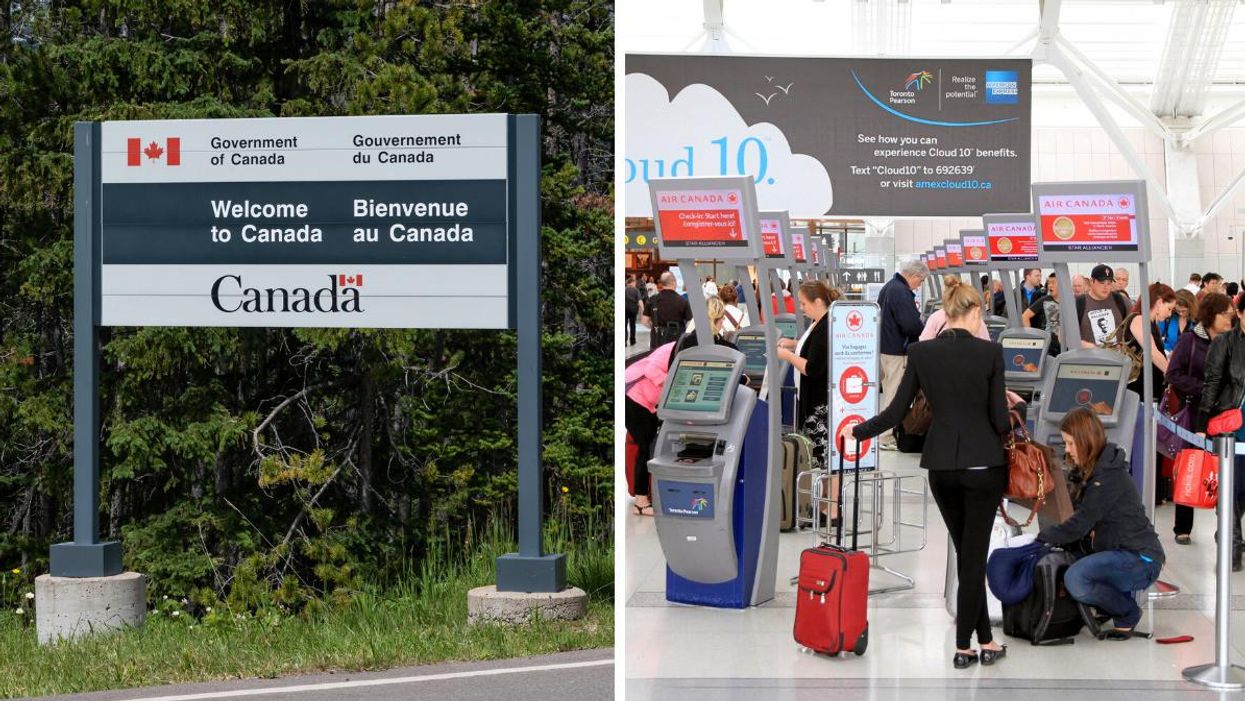Canada Has Made Some Changes To Its 'Super Visa' Program & Here's How It All Works
The changes will allow people to stay in Canada for even longer.👇

A "Welcome To Canada" sign by the Government of Canada. Right: Self-help kiosk at Toronto Pearson Airport.
The federal government has announced its plans to update Canada's super visa program — and it means eligible people will be able to stay in Canada for longer.
Announced on June 7, the changes to the super visa program aim to reunite families "more easily and for longer," according to Canada's Minister of Immigration, Refugees and Citizenship, Sean Fraser.
As of July 4, 2022, the maximum allotted time for the visa will be extended from two years to five years per entry into Canada, with the option to request a further extension for an additional two years.
Along with that, people coming into the country via the super visa program could soon be able to use their out-of-Canada health insurance for the coverage the visa requires.
Part of the rule change will allow the Minister of Immigration, Refugees and Citizenship to designate international health insurance companies to provide coverage for super visa applicants.
Right now, only Canadian insurance companies are able to provide coverage for visa applicants.
The super visa program is for parents and grandparents of Canadian citizens or permanent residents living outside Canada who want to visit their families for an extended period of time.
To get this visa, applicants must submit a letter signed by their children or grandchildren that confirms they will be financially supported during their visit. They're also required to share the number of people in their household and a copy of their permanent resident or citizenship documentation.
Along with that, the government has other conditions for super visa applicants, such as an immigration medical exam. Information about the financial standing of the family member taking them in, the purpose of their visit and much more may also be necessary.
The change to the super visa program comes after a recent bump in permanent residence fees that have made coming into Canada more expensive.
This article's cover image was used for illustrative purposes only.